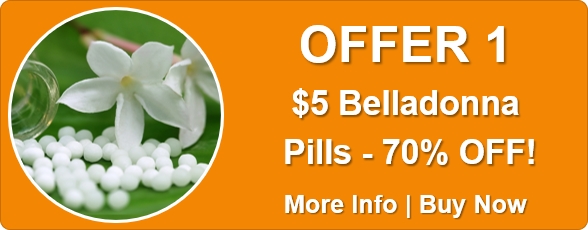Common Cold Treatments

Everyone hates a cold. Even the mild ones are unpleasant while more severe colds cause us to take time from work or interfere with our family life.
These annoying colds are the bread-and-butter of many homoeopathic practices during the autumn-winter months, yet few people realise how easy it would be for them to treat their own cold at home. To show how good homoeopathy is at managing the common cold, let’s look at just two studies:
One study of 499 children in 1999 showed that those children whose colds were treated with homoeopathy were more likely to feel and do better than those children whose colds had been treated conventionally. The homoeopathically treated children also had fewer complications, and their parents took significantly less sick-leave than the parents of those children treated with antibiotics.
Another 1994 study of 175 children at a University Hospital showed that those given a homoeopathic remedy had less symptoms and needed fewer antibiotics than those who had been given a placebo. They also went on to need fewer adenoidectomies.
To help you stop colds in their tracks with some simple measures, as well as with homeopathy, we have put together the following information for you:
- The best ways to avoid a cold
- The best self-help measures treat a cold
- Homoeopathic remedies which will kiss them goodbye
For the brave and adventurous, we have also provided cutting edge information on how to help a cold with wet socks and peroxide. Just read down to, ‘Strange but True’ to try them out. Please enjoy and nip those sniffles in the bud.
Infection and Spread
Billions of colds happen every year, especially during the cooler autumn-winter months. They are caused by virus a which enters the body through the mucus membranes of the nose or eyes. Symptoms normally appear 2–3 days after exposure, at which time the person is then infectious to others.
Although the common cold is mostly regarded as a nuisance disease, it can lead to complications such as sinusitis, bronchitis, and pneumonia.
Symptoms include:
- Sore throat
- Runny nose
- Sneezing
- Coughing
The disease usually progresses from one symptom to another until it has run its course over a 3 to 7 day period unless other opportunitistic bacterial infections take hold while the person is in a weakened state.
Avoiding the Common Cold
Wash your hands. Surprisingly, air-born viruses, coughed and sneezed by sick people, aren’t the main way colds are spread. They usually travel by skin to skin contact so shaking hands with someone with a cold, or coming into contact with something they have touched will transfer the virus. Wash your hands frequently when you’re around someone with a cold to reduce your risk of catching it.
Don’t rub your eyes or nose. Likewise avoid rubbing your eyes and nose, especially if you haven’t been able to wash your hands, as these are the two main points at which the virus enters your body.
Vitamin D helps the immune system respond to viruses and bacteria. It is manufactured in the skin when it is exposed to sun so make sure you get at least 30 minutes of being in the sunshine each day.
Make healthy lifestyle choices such as getting enough sleep, drinking pure water, and eating fresh and healthy food to build up resistance to coughs, colds and flu.
Be happy, don’t worry. Research has shown that a cheerful, optimistic outlook strengthens immunity. Not only that, but optimistic people who do catch a cold describe less symptoms than others. Laughter also releases endorphins which promote happiness and reduce the discomfort of a cold.
Ways to Treat the Common Cold Treatment
1. Practical Advice
Drink plenty of fluids. Drinking 8 to 10 glasses a day will thin the mucus and make it easier for your body to expel. Try drinking extra fluid with lemon juice, or turning it into a herbal tea for additional benefits (see below).
Go slow on the milk. Reduce, or stop, your consumption of dairy. Dairy stimulates the production of of mucus, especially in those who are sensitive to it, which in turn supports the growth of viruses and bacteria.
Rest is one of the most important things you can do when you’re sick. Illness is your body’s cry that it needs some time-out so listen and let it recover.
2. Stimulate that Immune System
Oysters are high in zinc, a mineral that is vital for immune function. It assist the helper T-cells of the immune system to recognise foreign invaders.
Yogurt and kefir contain micro-organisms called probiotics that increase the body’s white blood cells which protect against infections and harmful bacteria. Eat one to three serves every day.
Oregano is one of the best herbs for a cold. It is an excellent anti-inflammatory that contains phenolic acids, flavonoids and colour compounds that increase resistance and boosts immunity.
3. Control Infection
Lemon: When the body is sick it is usually too acidic. If you know this is the case with you (test your urine with a pH strip from the chemist), drink the juice of a lemon squeezed into a cup of water or tea every few hours. Even though lemons taste acidic, their juice helps to alkalinise the body once drunk.
Garlic is fantastic at treating sore throats and infections. Crush five cloves and mix with half a cup of honey. Let it sit for a couple of hours (it will become runny and thin) and take teaspoonfuls as needed. The same thing can be done with some onion rings. The concoctions taste a liot better than they sound!
Cinnamon is another natural antibiotic. It is rich in compounds that inhibit bacterial growth and strengthen resistance. Add it to your food or drinks to boost your immune system.
Turmeric contains an anti-inflammatory compound called curcumin, which has strong cold and flu fighting properties. Stir a teaspoon into a glass of water or use it in your cooking.
Cayenne pepper Take a teaspoon of pepper in a glass of water immediately you feel a cold or sore throat coming on. Its strong stimulatory effect can be enough to knock a cold out in the early stages.
4. Break up Mucus
Chicken soup, homemade from scratch (yum!), contains a natural amino acid called cysteine that thins the mucus, allowing you to expel it more easily.
Spices, especially the hotter ones used in curries, also thin mucus so it can be expelled easily. Ground fenugreek seed for example will cause your nose to run, as does chilli, black pepper, and other ‘hot’ seasonings.
5. Soothe those Symptoms
Honey and lemon soothe the mucous membranes of the throat and have an antibacterial effect – raw honey is best. Research shows that children who take a spoonful of honey before bed cough less and sleep better than those who take over-the-counter products for coughs and colds. Adding a little lemon to the honey will increase its anti-microbial effect. Honey and lemon can also be combined with hot water to make a soothing tea.
Ginger is a stimulant that will also warm you if you’re feeling chilled with your cold. It’s best used fresh rather than as a powder so peel and grate a small piece of ginger root and place in a cup of boiling water. Allowed it to steep for five minutes, sweeten with honey if desired and sip whenever needed.
Herbal teas such as oregano, sage and thyme also relieve the symptoms of a cold. Add a teaspoon of dried herb to a cup of boiling water and steep for 10 to 15 minutes. Strain and sweeten the liquid with honey if desired, then cool and store in the fridge. Take a teaspoon every hour as needed for a day or two.
Peppermint can clear blocked noses and sinuses. Enjoy it as a stimulating tea or add some teabags of it to your bath.
Vinegar can also ease congestion. Place some heated vinegar in a small bowl and gently inhale its vapours.
Strange but True
1. The Wet Sock Approach
Believe it or not, wet socks can trigger a reflex response from your body that relieves nasal congestion so you can have a better night’s sleep.
Before going to bed, warm your feet in a tub of hot water so they are hot and pink. At the same time soak a pair of cotton socks in iced water. Wring them out so they don’t drip and immediately place them on your feet (ooh!). Cover your icy socks with a thick pair of woollen socks and then climb into bed as quick as you can, making sure you are covered and warm.
This is simple hydrotherapy approach triggers a reflex in which your surprised body immediately increases its circulation which then clears blocked nasal passages and speeds up the activity of your immune system.
2. Tickle your Ears with Hydrogen Peroxide
Several researchers claim that the cold virus actually prefers to enter the body through the ear rather than the nose and eyes. They say that a cold can be stopped in its tracks during the early stages if drops of 3% hydrogen peroxide are placed in each ear to disrupt the replication process of the virus.
To do this, tip your head onto one side and have somebody gently place some drops within your ear. The liquid will fizz, producing a tickling sensation that sometimes mildly stings, but this is harmless. Leave the drops in place for 2 to 3 minutes, until the bubbling stops, then tip your head over and drain the fluid onto a tissue. Do the same with the other ear.
This process may need to be repeated a few times every 1 to 2 hours until no more bubbling occurs when the peroxide is placed in the ear. If this approach is applied early enough, the virus will be destroyed leaving you cold-free. You should also have very clean ears!
What about Conventional Medicines?
When it comes to health-care it sometimes seems we have lost our way. While most of us know that manufactured chemicals in our food, cleaning aids and personal products are causing some serious problems, we seem to be less aware that the same thing is true with our medicines. In Western society we are now so dependent on chemical drugs for our health-care that we have forgotten that simple measures can work just as well and with far less risk. Let’s look at what some of those risks are.
Save the Children!
When it first became known that children were being admitted to hospital and dying from over-the-counter cold and cough medicines, enquiries revealed that these products were useless for their intended purpose and contained dangerous medicines.
In 2008, the Australian Therapeutic Goods Administration (TGA) decided that over-the-counter cough and cold medicines should not begiven to children younger than 2 years of age. Drug regulating bodies in other countries such as Canada said they should only be given to children 6 years and older.
Pharmaceutical companies now place warnings about these products on their labels but because they did not have to be recalled, old merchandise is still sitting on the shelves of stores and being sold. Beware.
Remember, don’t give these medicines to children under 2 years of age. For children 2 years or older, still take care. Instructions issued by the TGA now state:
- Do not exceed the recommended dose, frequency of dosing or duration of use.
- Only use the medicine measure supplied with the medicine rather than a kitchen spoon so the right amount is given.
- Do not give other medicines containing similar ingredients at the same time.
What about the Adults?
But it is not just children who can be affected. Pharmaceutical companies will tell you that all cold and cough medications cause side-effects that affect some people more than others. Until the medication has been taken, and perhaps more than once, there is no way of knowing who that person will be or how marked the side-effect.
A quick look at a typical list of cold and cough medication side-effects includes: dizziness; excitability; headache; nausea; nervousness or anxiety; trouble sleeping; weakness; severe allergic reactions (rash; hives; difficulty breathing; tightness in the chest; swelling of the mouth, face, lips, or tongue); difficulty urinating; fast or irregular heartbeat; hallucinations; seizures; severe dizziness, lightheadedness, or headache; stomach pain; tremor; yellowing of skin or eyes.
If resorting to these chemical medicines for your simple cold it really is a case of Russian roulette, or buyer beware. Maybe it is time to think carefully and try some of the safer options first.
Treating Colds with Homeopathy
Treating yourself with homoeopathy for simple acute problems is easy aslong as you know how to choose the remedy that matches your symptoms. The common cold is the perfect opportunity for you to practice and become familiar with homeopathy. Unless you prefer to, there is no need for you to see a homoeopath first, and all remedies are safe for use with babies through to the elderly when used according to instructions.
To treat your cold, look through the remedies listed below to see which one matches your symptoms – then just take it. Instructions on how to dose, and how often, can be found here . If there is no improvement by 3-4 doses just reassess your symptoms and choose another remedy.
Should you find it difficult to identify and sort through your symptoms, ABC Homeopathy has an online remedy finder that can make it easier. Alternately, an appointment can be made with a homeopath who will try to get to the bottom of things for you.
Homeopathic Remedies for the Common Cold
Many of the following remedies are found in home-use kits.
(Taken from the Remedy Prescriber booklet that comes with the Ainsworth 42 Essential Remedy Kit.)
Aconite Napellus (Acon.)
Sudden onset and early stage of a cold, brought on by exposure or being chilled by a cold wind.
Allium Cepa (All-c.)
A streaming cold with much sneezing and watery eyes. The eyes may be burning and sensitive to light but the discharge is bland and does not burn the cheeks, whereas the discharge from the nose is burning and can make the upper lip and nose raw. The patient may start sneezing on entering a warm room. All symptoms are much better for fresh air and worse in a warm room, and towards the evening.
Arsenicum Album (Ars.)
A streaming cold with burning discharge from eyes and nose. Patient is restless and anxious and very chilly with apparent difficulty in keeping warm. Eyes and nose have a watery discharge. There is sneezing, without relief, and the nose feels stuffed up. Symptoms are worse for cold, during the night and better for warmth.
Calcarea Carbonica (Calc-c.)
Stuffy colds, with offensive smell in the nose and unpleasant smelling yellow mucus. Dry, sore, ulcerated nostrils. Individuals that catch colds easily at every change of weather and babies with snuffles.
Euphrasia (Euphr.)
The opposite symptoms to Allium cepa. The eyes are constantly streaming with a burning discharge, whereas the nasal discharge is bland and does not cause rawness of the nose or upper lip. The eyelids are swollen, burning and the cheeks are red from the burning tears. Sensitive to light, the patient is better in the open air and worse inside.
Ferrum phosphoricum (Ferr-p.)
Colds come on slowly and may be heading for the ears or chest. Ferrum phos is particularly suited to the sore throat or that chesty stage before the cold develops into bronchitis. The patient may be flushed in the face and complain of feeling weak or lethargic. Eyes red and inflamed with burning sensation. Frequent colds with tendency to nosebleed.
Gelsemium Sempervirens (Gels.)
A cold with flu-like symptoms, such as aching, trembling, a heavy, dull head.
Hepar Sulphuris (Hep.)
The later stage of a cold, with thick offensive nasal discharge. There is extreme sensitivity to cold, in any form – even a cold wind provokes sneexing and streaming. This will thicken up later to yield discharges that smell like old cheese and are yellow to green in colour.
Kali Bichromicum (Kali-bi.)
Tough stringy catarrh is the guiding symptom. Violent sneezing with stubborn congestion and a ropy, stringy or sticky discharge. Eyelids swollen and burning. Good for snuffles in children, especially fat, chubby babies. All symptoms are better for heat.
Mercurius Solubilis (Merc)
Patient is sensitive to both heat and cold. There is a great deal of sneezing, especially in sunshine and warm conditions, and this will provoke a profuse burning discharge form the eyes. The nostrils are raw from the burning, profuse discharge, which is likely to be blood-streaked. As the cold progresses, the discharge becomes greenish, fould tasting and he breath offensive.
Natrum Muriaticum (Nat-m.)
Streaming eyes and nose with much sneezing. Eyes may be burning, but the discharge form eyes and nose is bland. The copious discharge is clear, like egg-white, for the early stage, but after about three days is superseded by congestion. During the cold, the patient typically loses all sense of taste and smell with tiredness and weakness. They may resent being fussed over and be easily irritated by silly little things. Worse in the morning, from exertion, heat and better for fresh air.
Nux Vomica (Nux-v.)
These are irritable people, who don’t suffer fools gladly and everything upsets them- light, noise, draughts, etc. They get stuffy colds after exposure to dry cold conditions and are congested with a dry nose. There is a peculiar picture of being stuffed up in fresh air and at night, although they have streaming noses when inside.
Phosphorus (Phos.)
These are outgoing, expressive people who require reassurance. The anxiety about their health is easily placated unlike the Arsen alb patient who will worry endlessly, even after much reassurance. The Phosphorus patient is very prone to nosebleeds and symptoms arise through a change in weather or from moving from heat to cold or vice-versa. Colds which result from being run down.
Pulsatilla pratensis (Puls.)
Colds that thicken up leaving one nostril blocked, with a loss of smell and offensive breath. One sided symptoms are common. The eyes may be itching and burning or stuck together, with profuse yellow-green mucus in the morning and the nose congested at night. All symptoms are much worse in a warm room and relieved by fresh air. The patient will either be weepy and clingy or crave sympathy and attention.
Many of the above remedies are found in home-use kits.
References
[1] Trichard, M, Chaufferin, Nicoloyannis, N., Pharmacoeconomic Comparison Between Homeopathic and Antibiotic Treatment Strategies in Recurrent Acute Rhinopharyngitis in Children, Homeopathy (2005)94, 3-9.
[2] de Lange de Klerk, ESM, Blommers, J, Kuik, DJ et al., “Effect of Homoeopathic Medicines on Daily Burden of Symptoms in Children with Recurrent Upper Respiratory Tract Infections,” BMJ, November 19, 1994;309:1329-1332.







